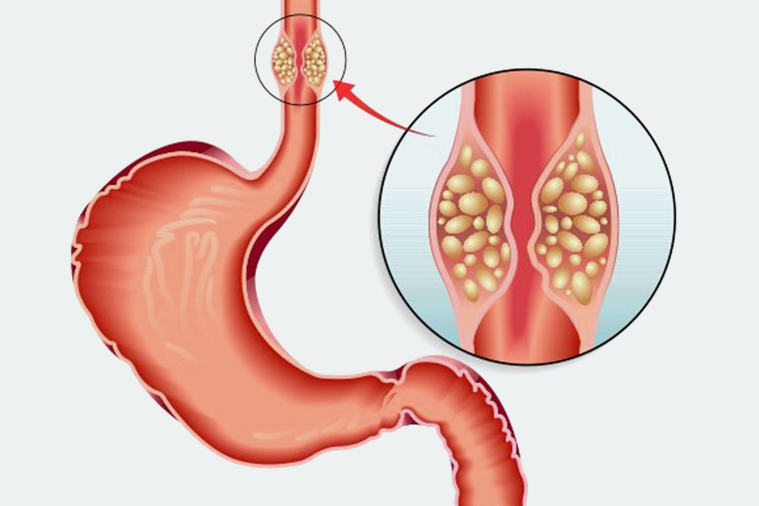Know About The Important Signs Of Esophageal Cancer


What Is Esophageal Cancer?
Esophageal cancer occurs in the esophagus — the long, hollow tube that runs from the throat to the stomach and helps transport food and liquids for digestion. Though vital to the digestive system, this cancer is often aggressive and tends to be diagnosed at a later stage, making awareness and early detection all the more important. Esophageal cancer is the 11th most common cancer worldwide. It is the 7th most common cancer in men and the 16th most common cancer in women.
Types of Esophageal Cancer
There are two primary types of esophageal cancer. Adenocarcinoma, typically found in the lower part of the esophagus, is often linked to acid reflux and obesity. Around 9% of esophageal adenocarcinoma cases have a family history of Barrett’s Esophagus, a condition that significantly increases cancer risk by up to 25 times. Squamous cell carcinoma, which occurs more commonly worldwide, generally affects the upper or middle sections and is closely associated with tobacco and alcohol use.
Risk Factors
Several factors can raise the risk of developing esophageal cancer. These include smoking, excessive alcohol intake, chronic gastroesophageal reflux disease (GERD) or Barrett’s esophagus, obesity, poor dietary habits, age over 50, and male gender. A history of certain cancers or exposure to radiation in the head and neck region also increases susceptibility. Esophageal cancer prognosis depends on factors like tumor location, spread, and surgical outcomes. The overall five-year survival rate is about 20%, ranging from 5% to 47%, with higher survival linked to early detection.
Warning Signs to Watch For
Esophageal cancer is often silent in its early stages. As the disease progresses, individuals may experience difficulty swallowing (dysphagia), unexplained weight loss, chest pain or discomfort, and a persistent cough or hoarseness. Chronic heartburn or indigestion that doesn’t resolve with usual treatment should not be ignored. In some cases, vomiting, sometimes with traces of blood, may also occur. Recognizing these symptoms early and seeking medical advice promptly can be lifesaving.
The Importance of Early Detection
Due to the late onset of symptoms, many cases are diagnosed when the disease has already advanced. Individuals with risk factors, especially those with GERD or Barrett’s esophagus, should consider regular screenings. Endoscopy, imaging, and biopsy are crucial diagnostic tools that can help in the early identification of esophageal abnormalities.
Prevention Tips
Although not all cases of esophageal cancer can be prevented, lifestyle changes can significantly reduce the risk. Quitting smoking and limiting alcohol intake are among the most effective preventive steps. Maintaining a healthy body weight, following a balanced diet rich in fruits and vegetables, and managing acid reflux through lifestyle adjustments or medications can further protect the esophagus. Regular medical check-ups are especially important for those considered at high risk.
Spreading Awareness
April is recognized as Esophageal Cancer Awareness Month, symbolized by the color periwinkle blue. It’s a time to educate others, stand with patients and survivors, and encourage conversations around prevention and early care.
Take Charge of Your Health
Esophageal cancer is a serious condition, but early detection and healthy lifestyle choices can make a powerful difference. If you or a loved one is experiencing persistent or unusual symptoms, don’t ignore them. Timely consultation with a healthcare provider can lead to early diagnosis, and early action can save lives.
About the author- Dr. Manujesh Bandyopadhyay, Consultant – Thoracic & Vascular Surgery, Narayana Hospital, Howrah
